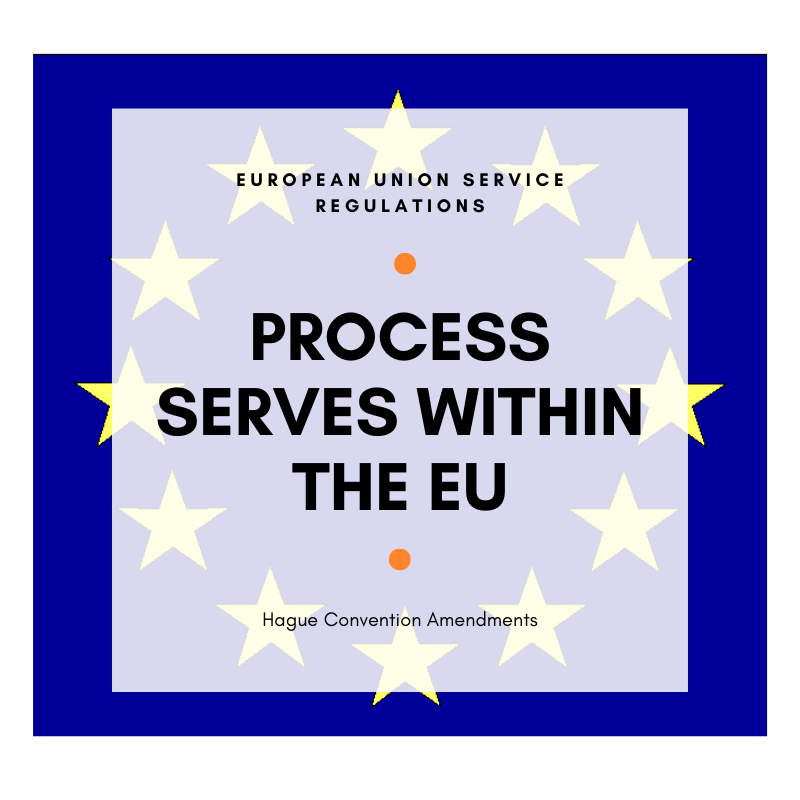Introduction - European Union Process Serves
European Union Process Serves became a little easier to undertake back in 2007–8 with the introduction throughout the European Union (except Denmark) of simplified rules and procedures. For instance, this includes the use of common forms and requirements to serve the judicial documents as soon as possible. Also, documents transmitted under the revised scheme are exempted from the need to be legalised.
The rules and procedures only apply to European Member States. These rules do not apply to other international process serves – only within the EU.
Internal EU Serves
The EU Service Regulation has replaced The Hague Convention for service of judicial documents from one EU member state to another. It applies to service of proceedings between Hague Service Convention Contracting States and EU member states, notably.
The “Council Regulation (EC) 1393/2007 of 13 November 2007 on the service in the member states of judicial and extrajudicial documents in civil or commercial matters” regulates the service of judicial and extrajudicial documents between European Union member states. It has applied from 13 November 2008 and repeals the previous Service Regulation (EC) 1348/2000. It provides, inter alia, a procedure for the service of documents via designated “transmitting agencies” and “receiving agencies”. This negates the recourse to consular and diplomatic channels, and other methods of service.
The Regulation applies to all EU member states, with the exception of Denmark.
Important Aspects
Service by Postal Services
Of note, service through postal services became acceptable as long as it is by registered letter and with an acknowledgement of receipt.
Direct Service Permitted
Interestingly, the new rules include reference to Direct Service:
“Any person interested in a judicial proceeding may effect service of judicial documents directly through the judicial officers, officials or other competent persons of the Member State addressed, where such direct service is permitted under the law of that Member State.”







